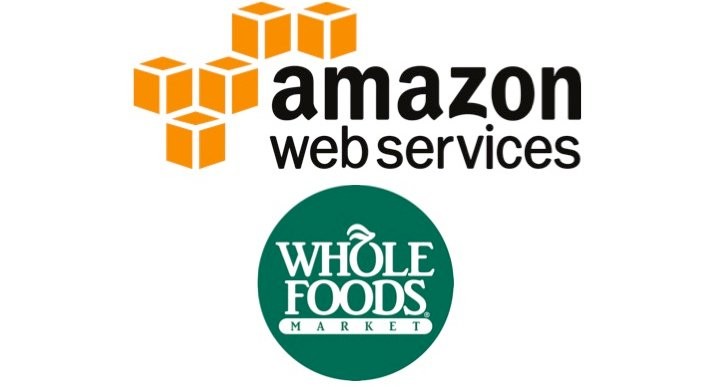
Amazon announced that it is acquiring Whole Foods for $13.7B. There are several theories going around about the move, from direct competition with Walmart, to an interesting theory by Blockchain Expert Richie Etwaru, who ties in Amazon’s designs on becoming a pharmacy with the deal, and whether they might go after a healthcare payer next. Some even are speculating that Nordstrom is next on the Amazon shopping list.
As the Chief Product Officer at Reltio, my focus is on the data, and helping companies avoid being “Amazoned” (Informal definition: Brick and mortar stores under threat from online competitors). Rewind 1.5 years ago, an article by Phil Wainewright of Diginomica caught my attention. “Whole Foods Market teams with Infor to transform retail.” Credit Whole Foods executive vice president and CIO Jason Buechel with his vision to be more data-driven, and to create one source of the truth.
“Based on what we know about customer behavior, attitudes we know about that store and region, we want to make decisions on everything from assortment planning to space allocation, pricing, promotion. A lot of that has got to do with insights from the platform and having better analytics to make decisions.
Whole Foods and Infor’s partnership was supposed to result in a next-generation, cloud-based retail management system to transform its core operations. Infor, which hosts the software on Amazon Web Services (AWS), intended to make the solution available to other retailers in the industry.
In the article Buechel also told author Phil Wainewright of Diginomica that Whole Foods has carefully weighed the pros and cons of that cloud infrastructure being operated by Amazon Web Services (AWS), which is part of a company with which it competes in the online grocery market.
“We’re OK with this decision, for two reasons. One, the ‘chinese wall’ — the commercial commitment that Amazon does not have access to the data or any of the things that are really being processed within AWS within this solution. We’ve had specific direct conversations with Amazon involving our legal teams and really understanding that limitation.”
If Amazon were ever to breach those commitments I think it would be devastating to their business — and a quite profitable business for them as well.
There’s also the huge consideration that this is the largest, best and most cost-effective platform in this space. Another partner would not yield as good a result. It is not just cloud hosting, it is a platform, a toolset, that allows speed-to-market that are not offered by other providers.
Kudos to Phil Wainewright for this article, because it called out what all Retailers are thinking today. The only way to avoid being “Amazoned” is to run on the very platform, Amazon Web Services, that can allow me to compete with Amazon.
Retailing executives are asking themselves am I okay with that? What are my alternatives? Clearly Whole Foods CIO Jason Buechel knew it was a risk worth taking. He may not have foreseen that Amazon would acquire Whole Foods, but he definitely knew that doing nothing was not acceptable.
Other data experts saw this coming as well. Bill Schmarzo, CTO, Dell EMC Services (aka “Dean of Big Data”) posted an amazingly relevant digital transformation blog post, with a Grocery chain case study less than a week ago!
As for the question, did Amazon buy Whole Foods for the groceries or the data? Clearly this is an amazing twofer. They get a physical presence that can help their delivery and Amazon Fresh efforts, but they also get the significant dataset of customers who buy groceries from Whole Foods. They now have the information to bring together a complete single view of customer, from brick and mortar shopping to online purchases.
In the end the data-driven takeaway to all retailers is not just evolve or be Amazoned, but do it fast because no company can afford to spend years working on digital transformation, when their very survival depends on better customer experience, better marketing, better omnichannel engagement, personalization and more.
At Reltio, we’ve honed our Modern Data Management Platform as a Service (PaaS) to give companies the agility they need to not just survive, but thrive.
Incidentally Ajay Khanna, Reltio’s VP of Marketing will be presenting on this exact topic at the MITCDOIQ Summit in Cambridge, MA on July 13th. We hope to see you there.
